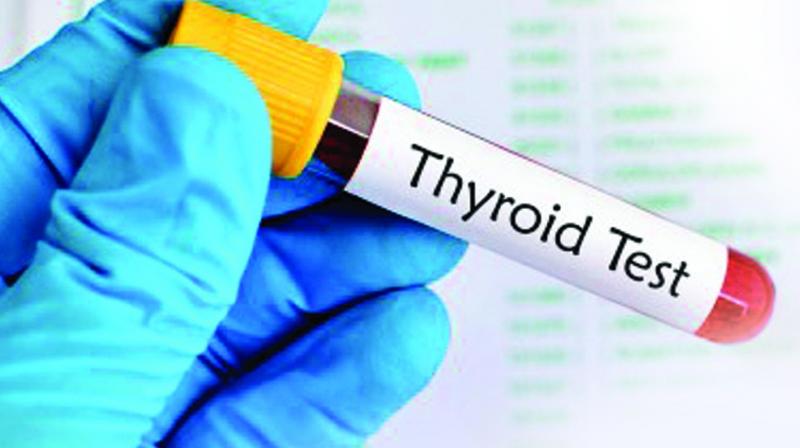Challenges mount in hypothyroidism care
Demand for rational advisory board to bridge the gaps.

Hyderabad: The treatment of hypothyroidism is becoming a challenge as it is often found that despite medication there is no co-relation between the degree of the disease and the symptoms.
There is a demand to have a national advisory board on hypothyrioidism to understand the gaps in diagnosis and treatment of the disease in India as it is found to be misdiagnosed and over-treated.
It is estimated that 42 million people in India suffer from thyroid diseases. The prevalence of hypothyroidism in India in the adult population is 10.95 per cent.
Hypothyroidism is caused when the cells in the thyroid gland are not able to make enough thyroid hormone. In maximum cases, it has been found that the thyroid hormone production stops suddenly. This autoimmune disorder is found more in women than in men. It has been found that during a viral infection the gland dumps all the hormones into the blood, leading to over activity, and then becomes underactive.
Dr Sreedevi Patnala, consultant endocrinologist at Apollo Hospitals, said, “The biggest challenge is the subclinical diagnosis and its treatment. We are finding patients that are over-treated for the disease which is becoming a major problem. There is a need to bridge the gap and empower the general physicians who treat these disorders. This will do away with the unnecessary treatment.”
There is presently only one type of treatment and that is replacing the deficient thyroid hormone. Despite the treatment, the effect of medication is not as desired in some cases. Experts said there is a need for further research.
While iodine deficiency is one of the causes for the diseases, a senior endocrinologist explained, “We are having iodised salt which is taking care of the deficiency. But it is also being observed whether in some patients there is too much of iodine which is leading to these problems? In some cases, where the disease is not coming under control, the patients have been asked to stop iodised salt. Hence over supplementation is also emerging as a reason.”
Dr Sudhakar Reddy, senior endocrinologist at Sunshine Hospitals, explained that the thyroid gland plays an important role in readjustment of hormones during ageing.
“Elderly patients need to be managed properly as there are changes in thyroid hormone production which is found to affect their metabolism. The ageing population comes with co-morbid conditions like diabetes, hypertension and even conditions like underwent anti-cancer treatment or patient of transplant. These require to be closely evaluated before giving the dosage,” Dr Reddy said.

